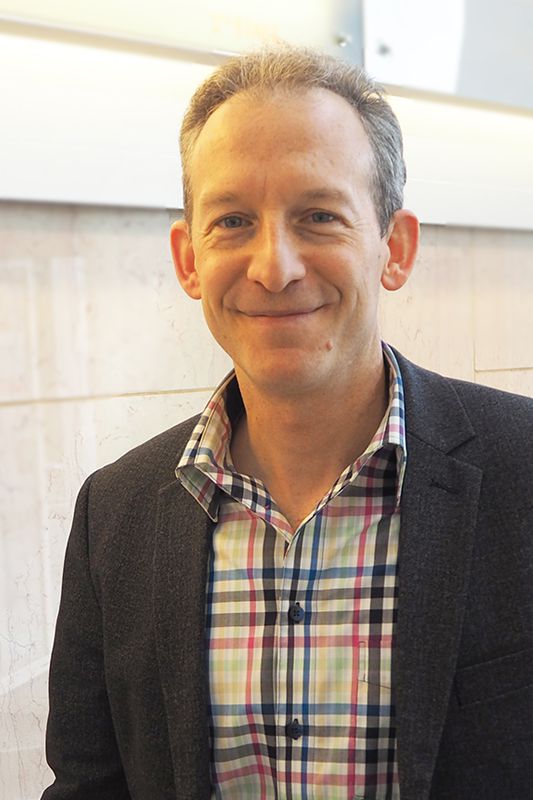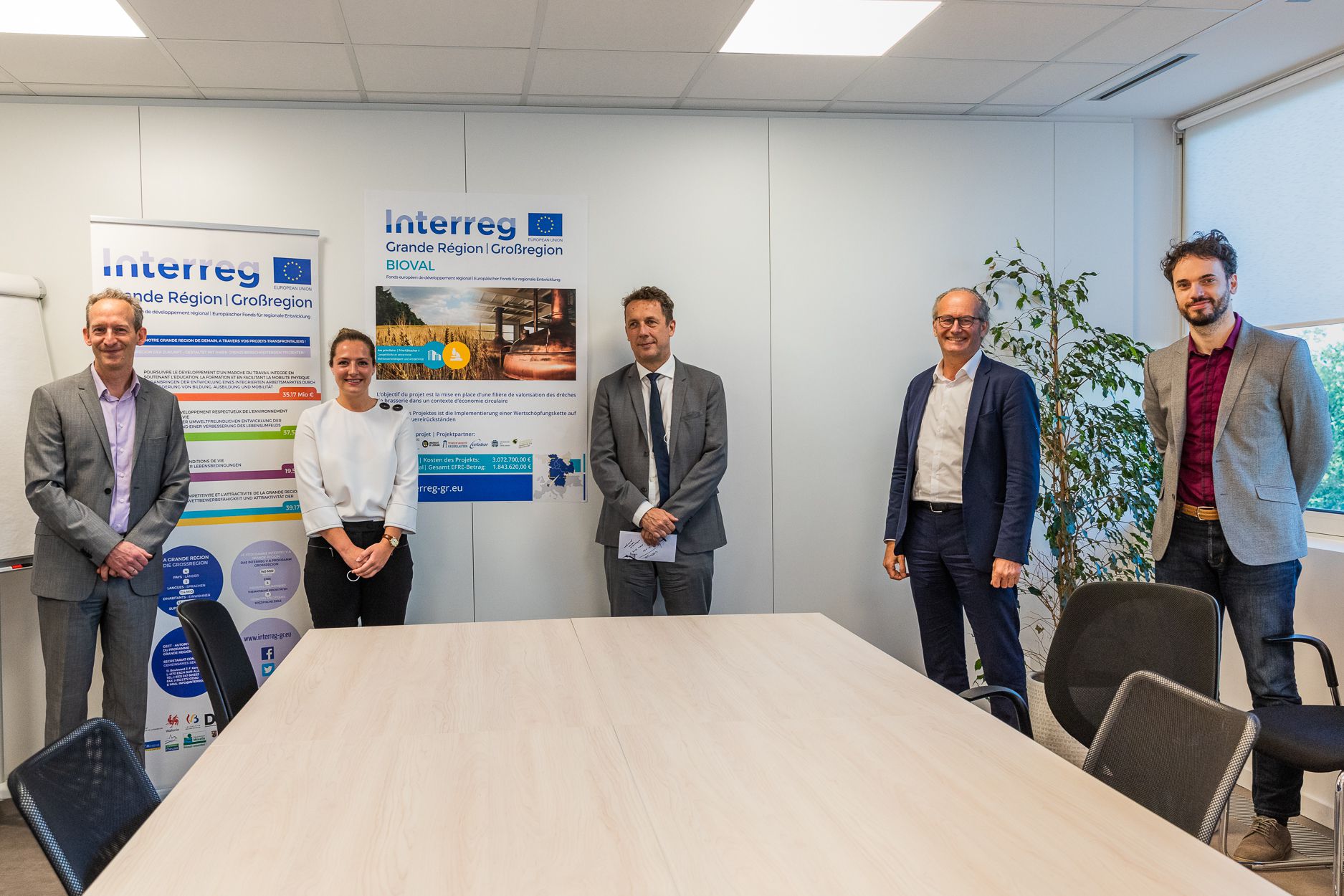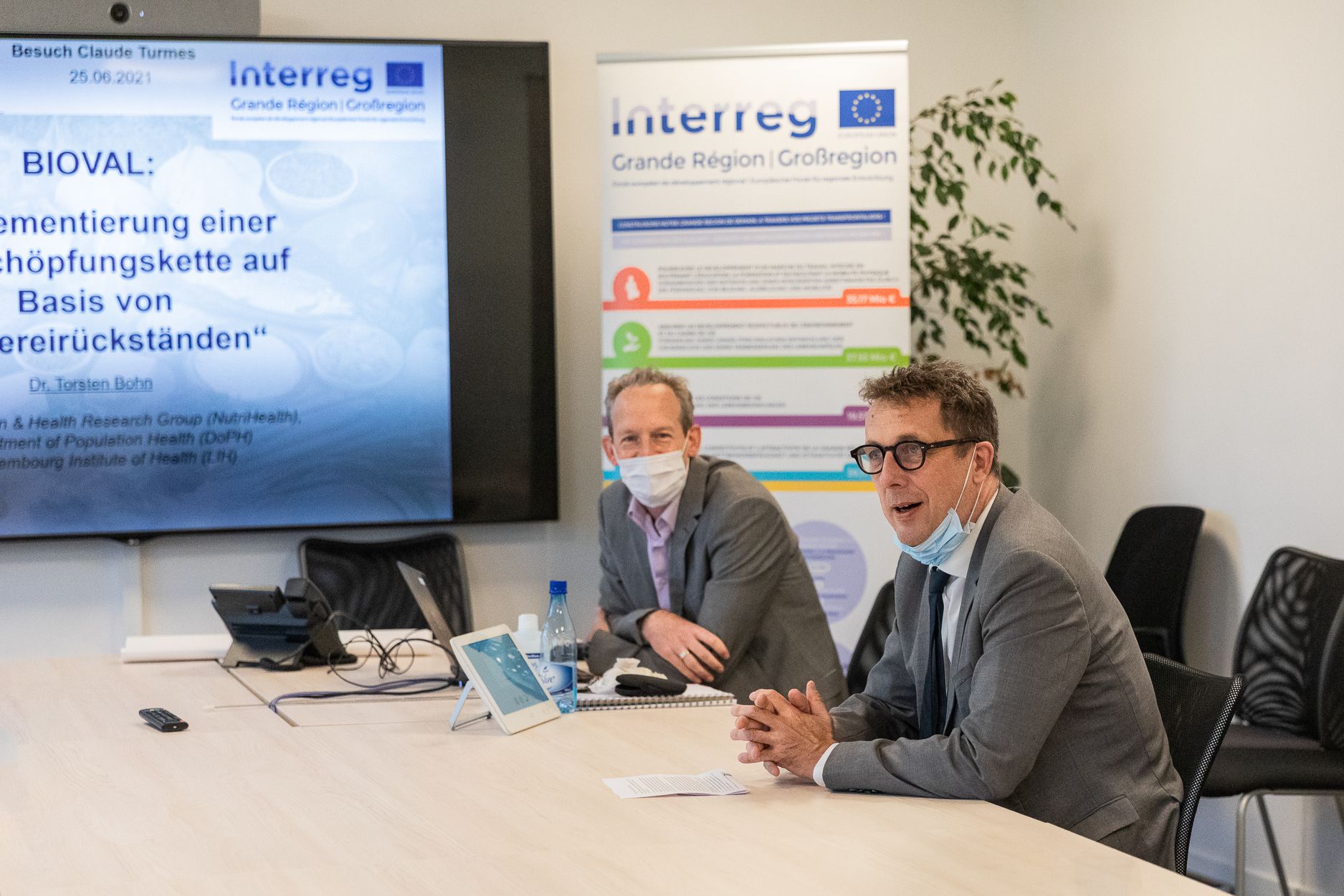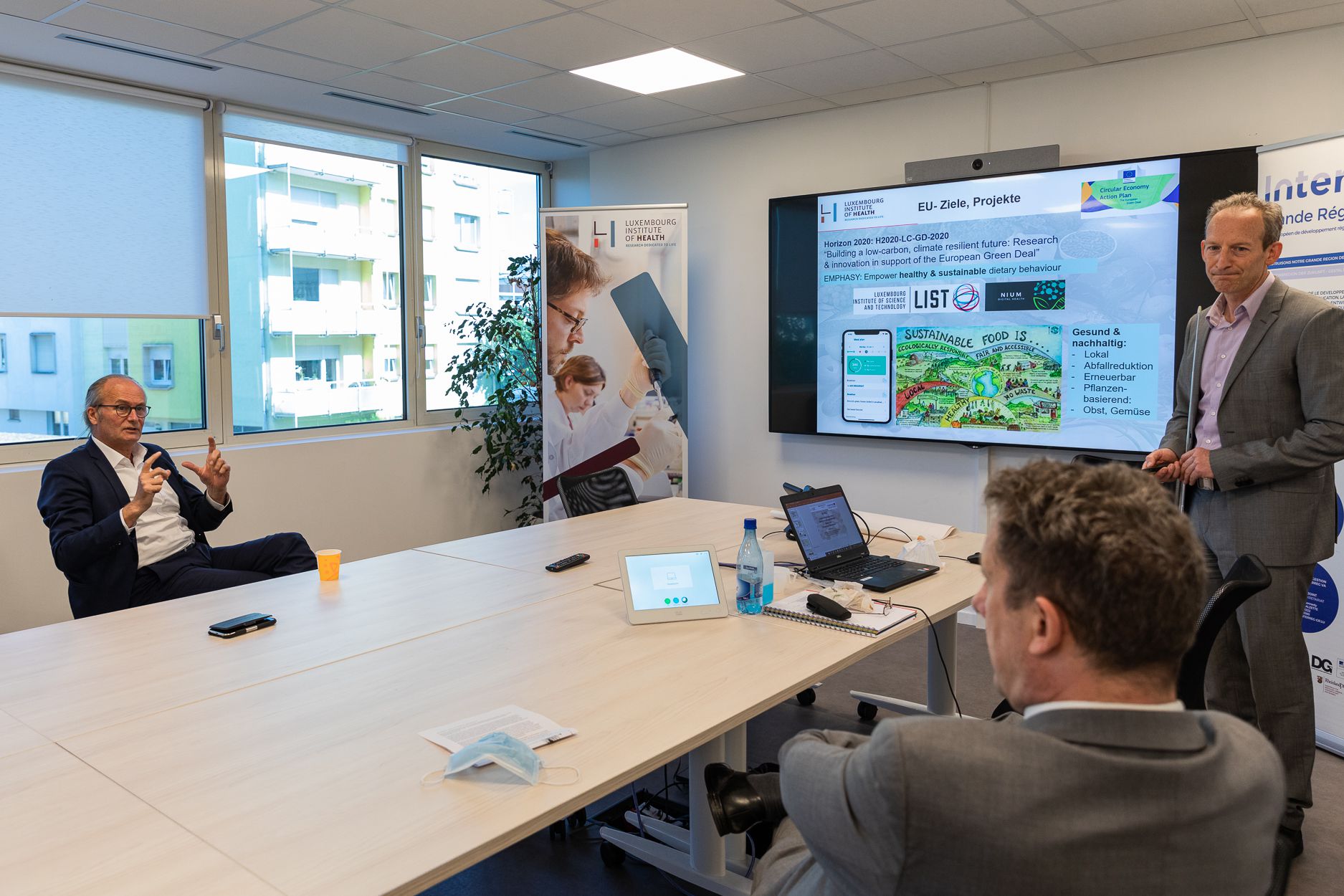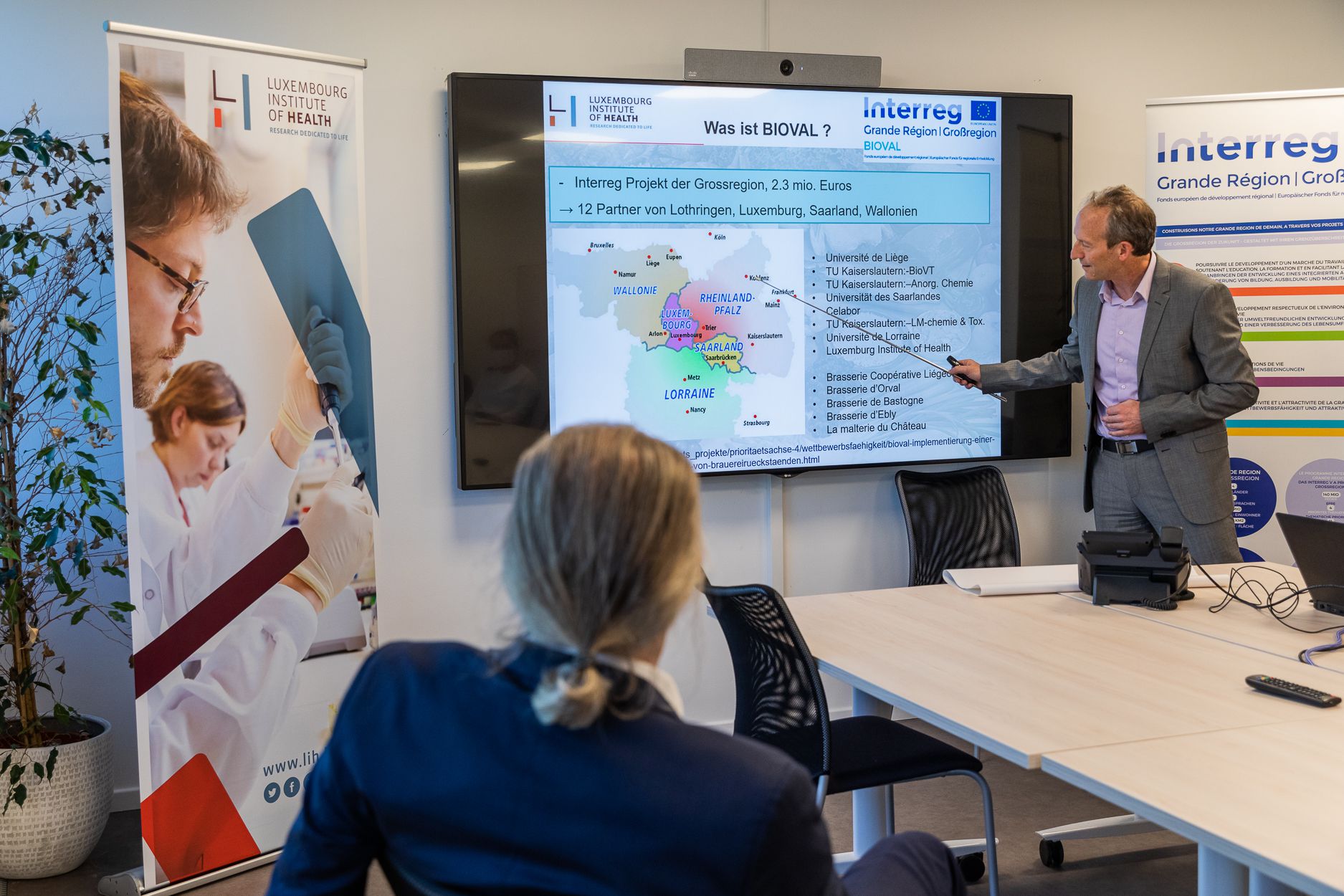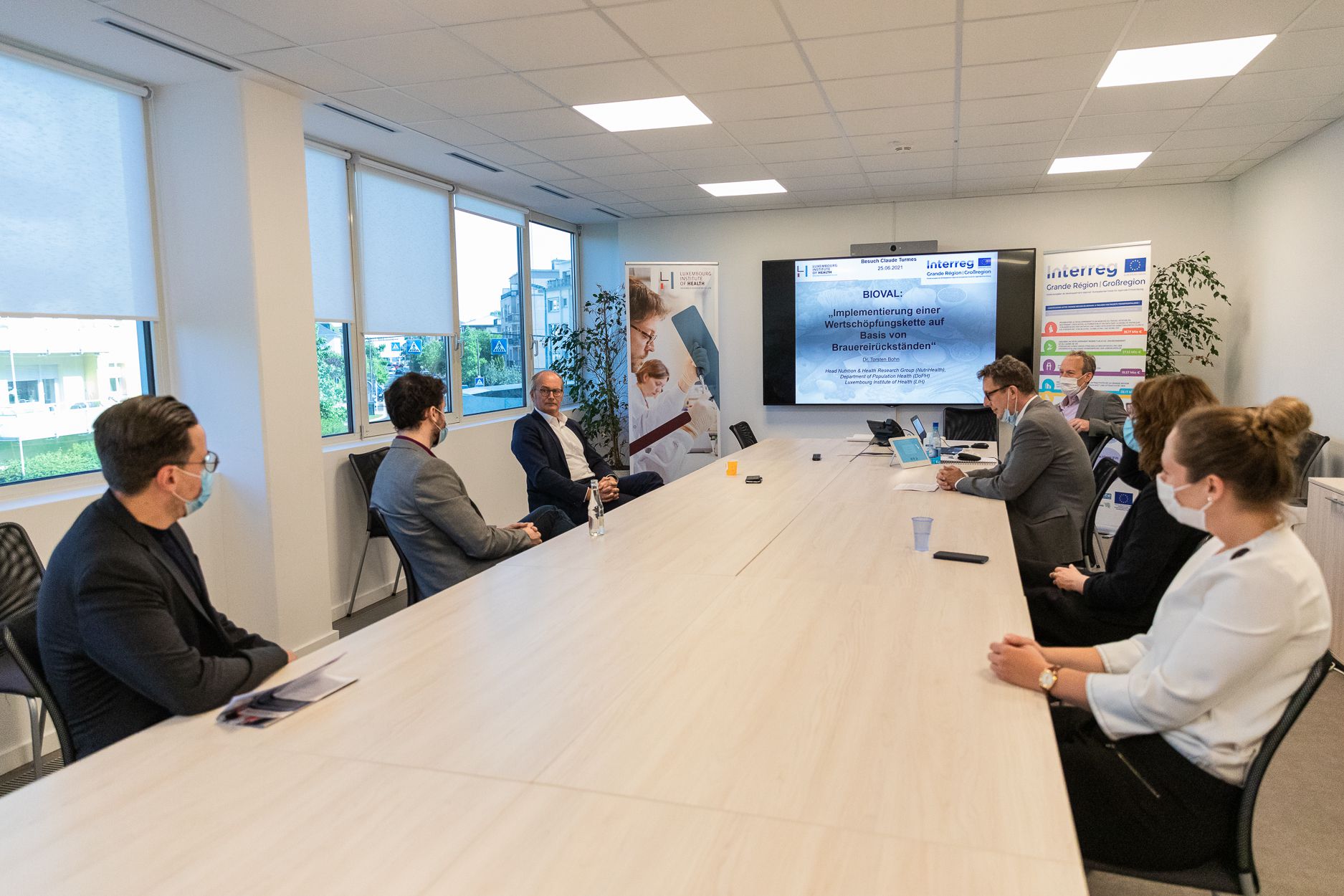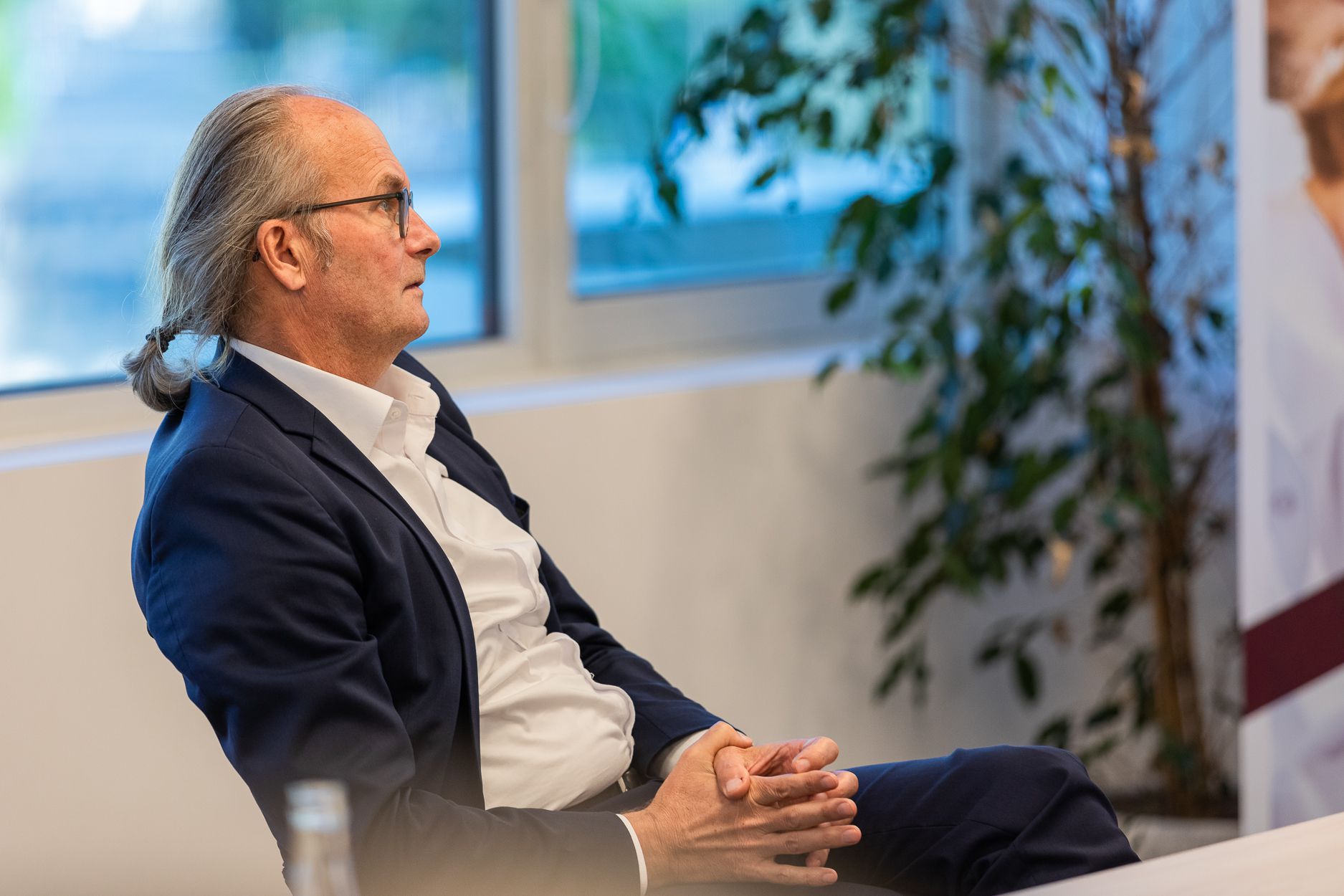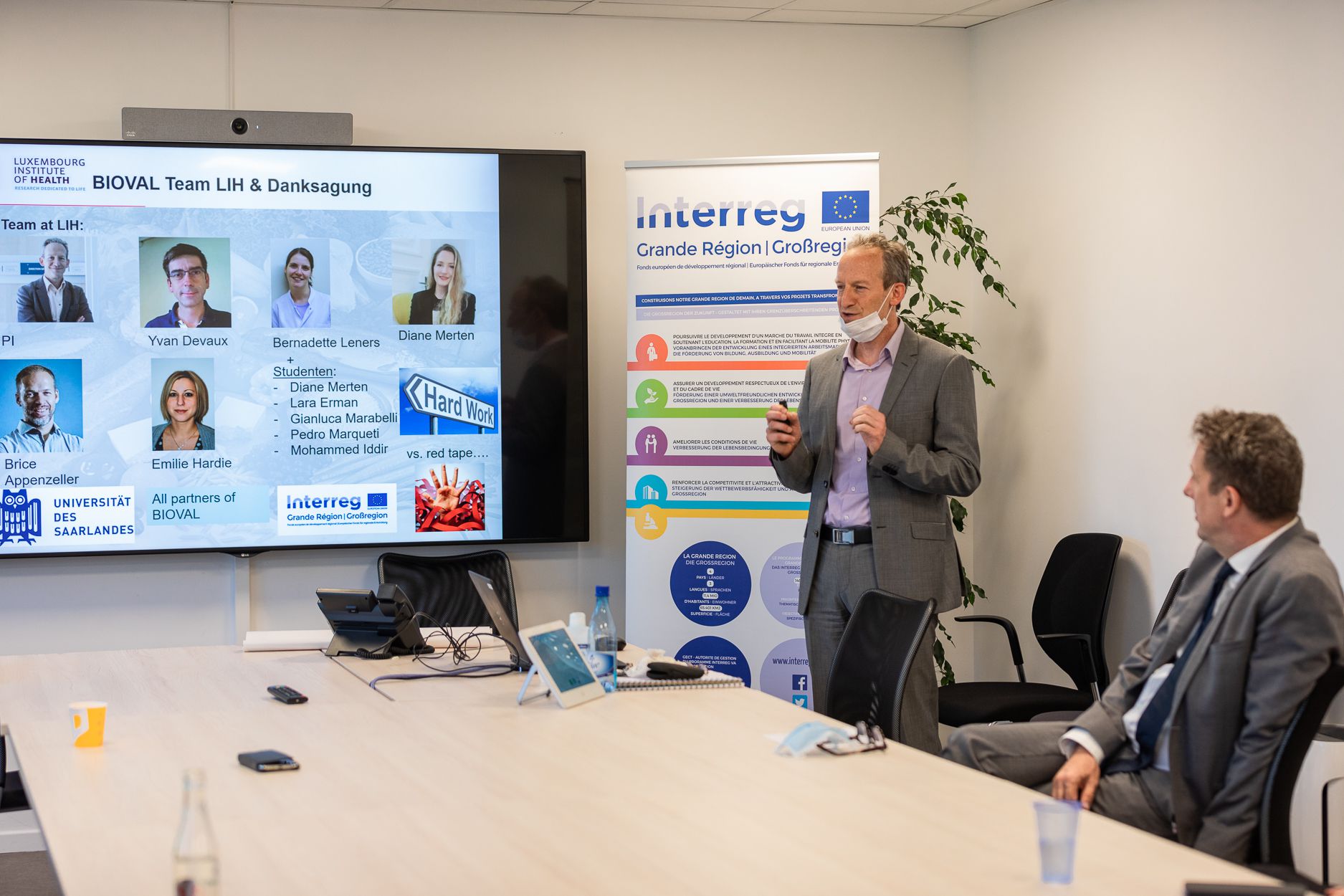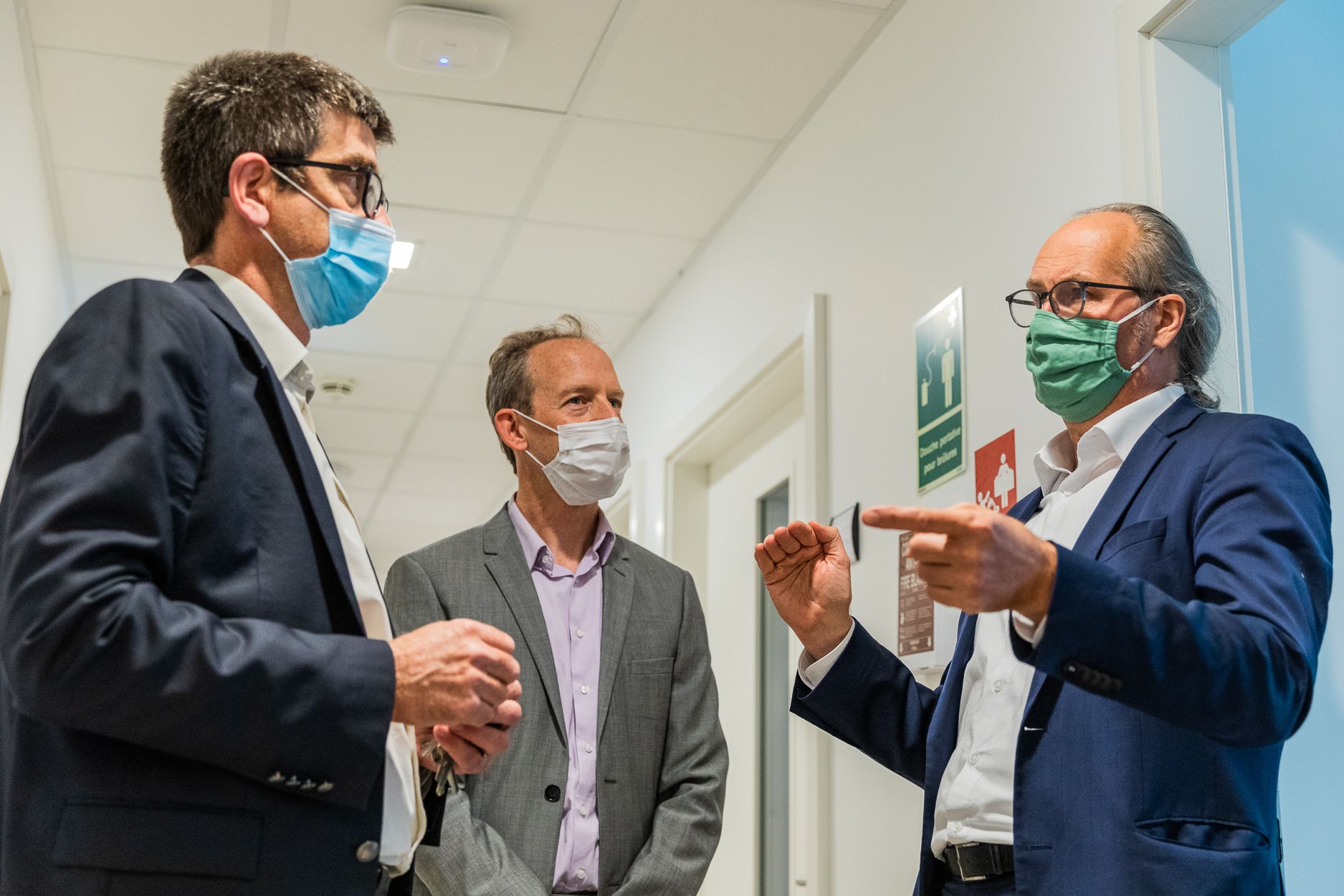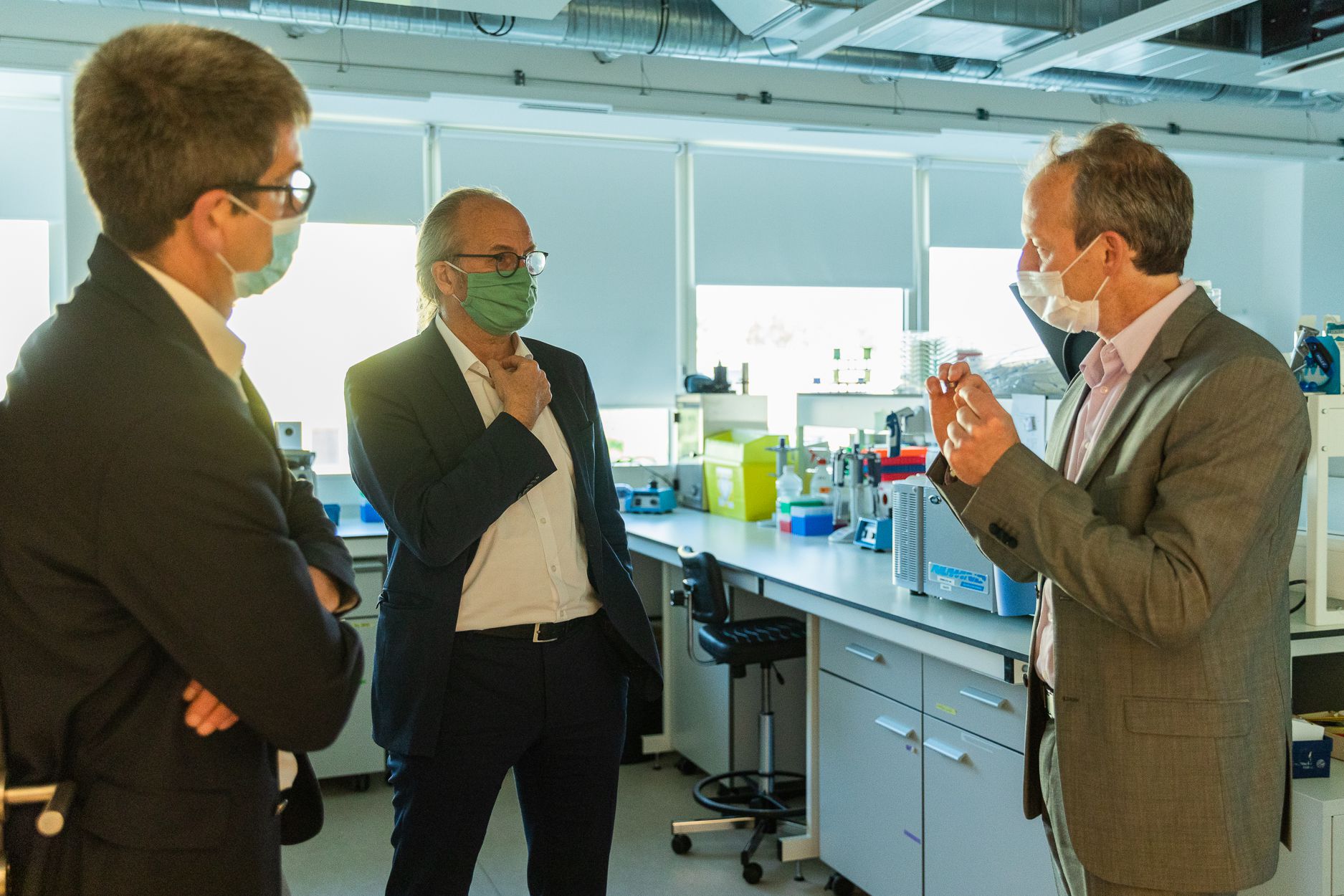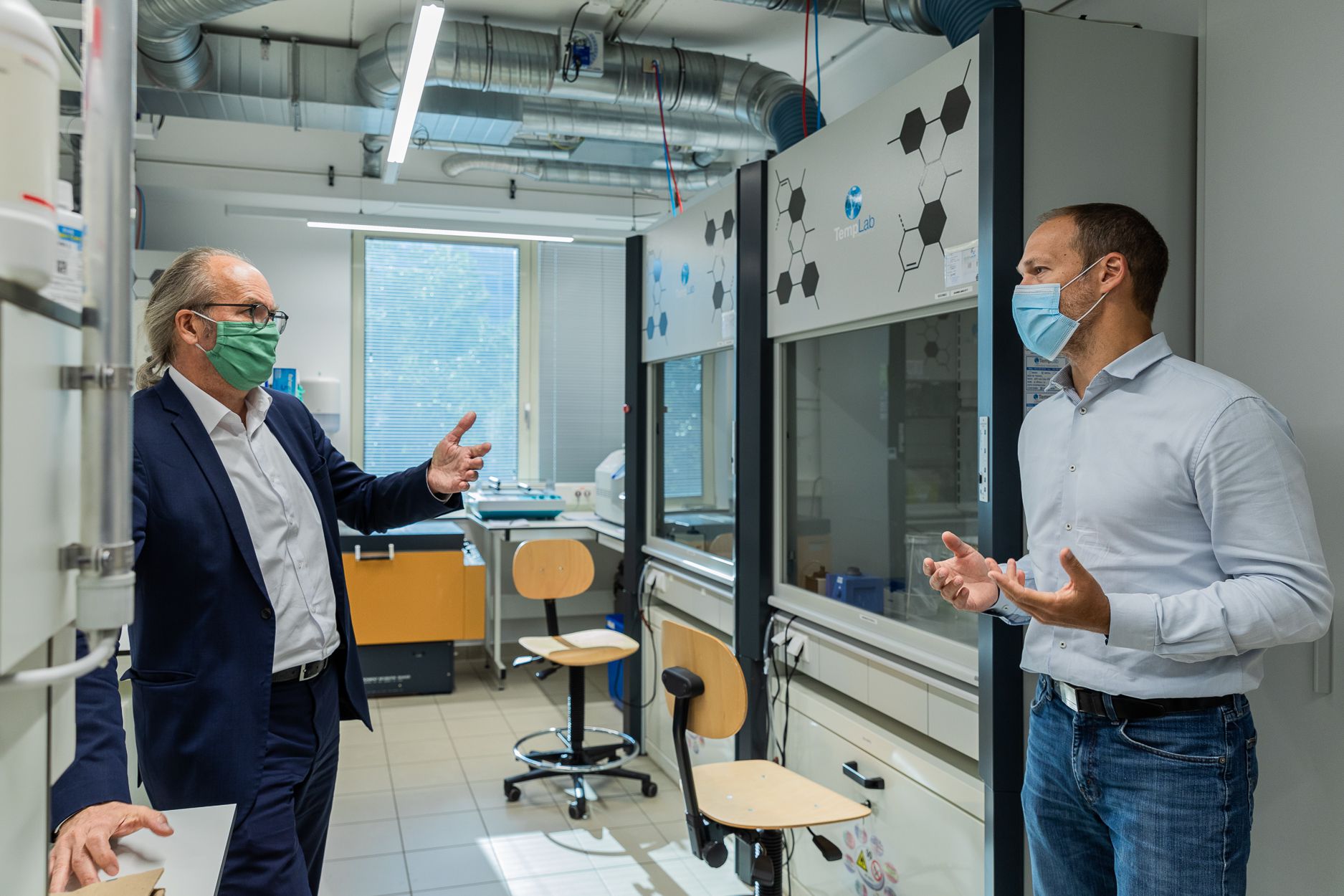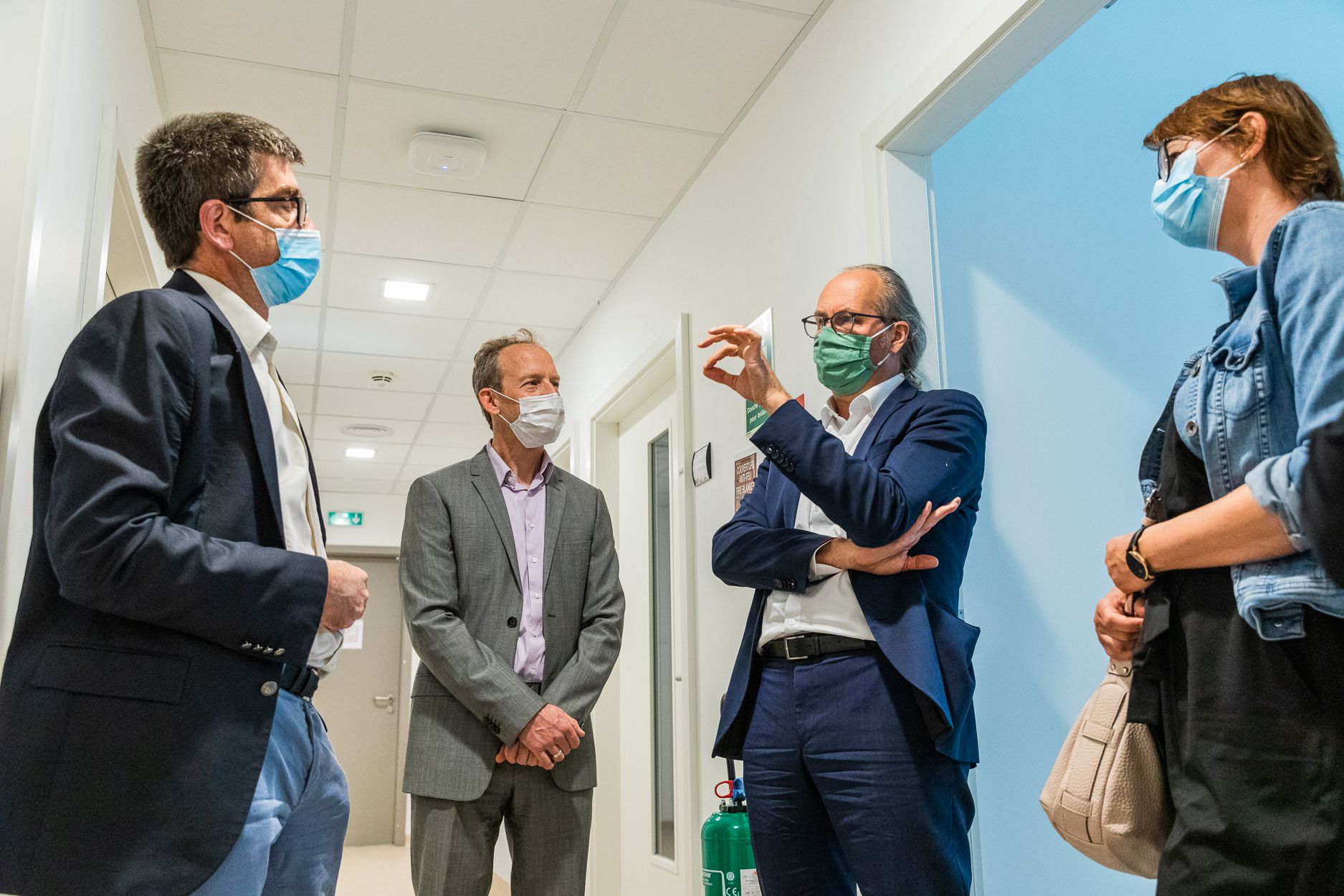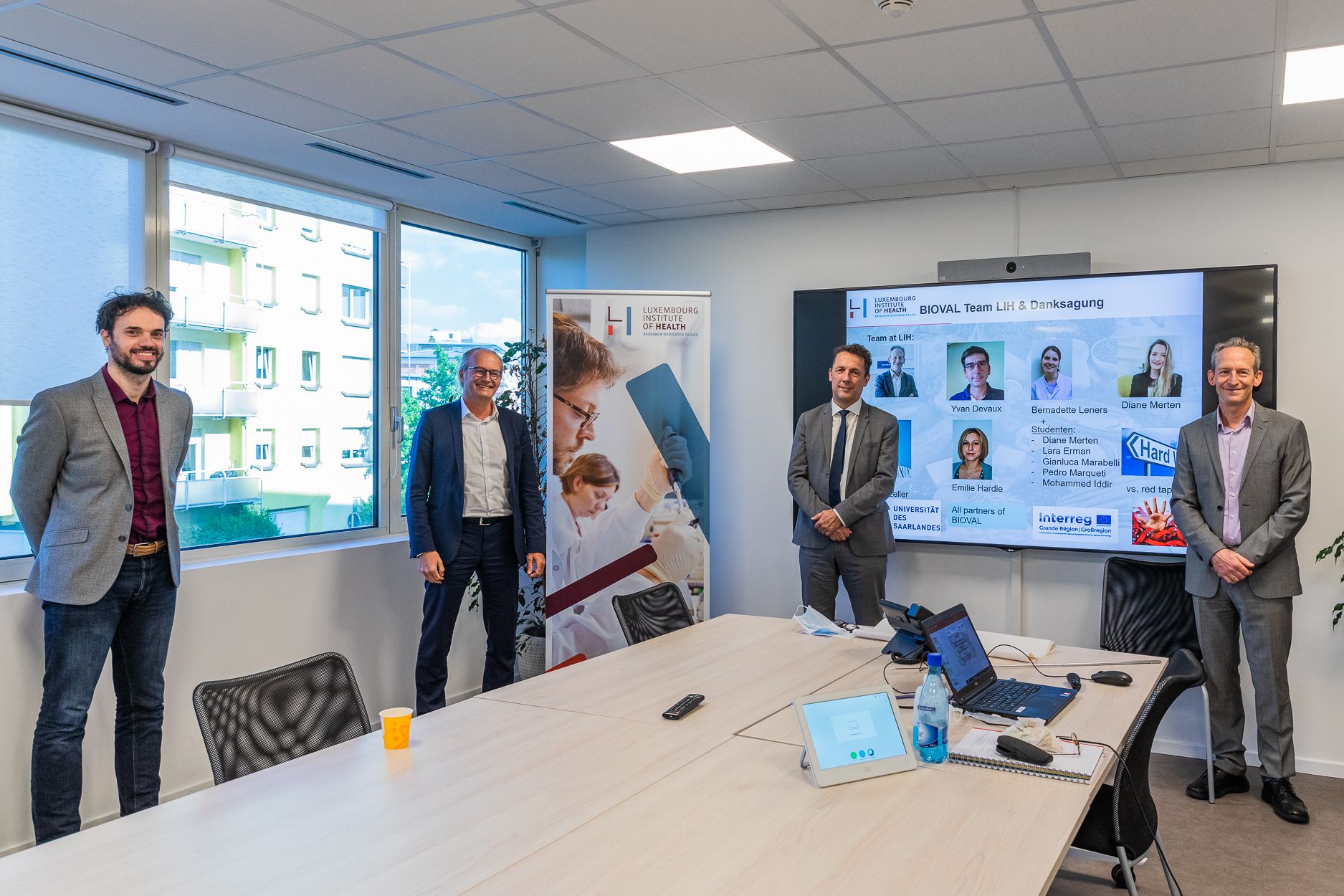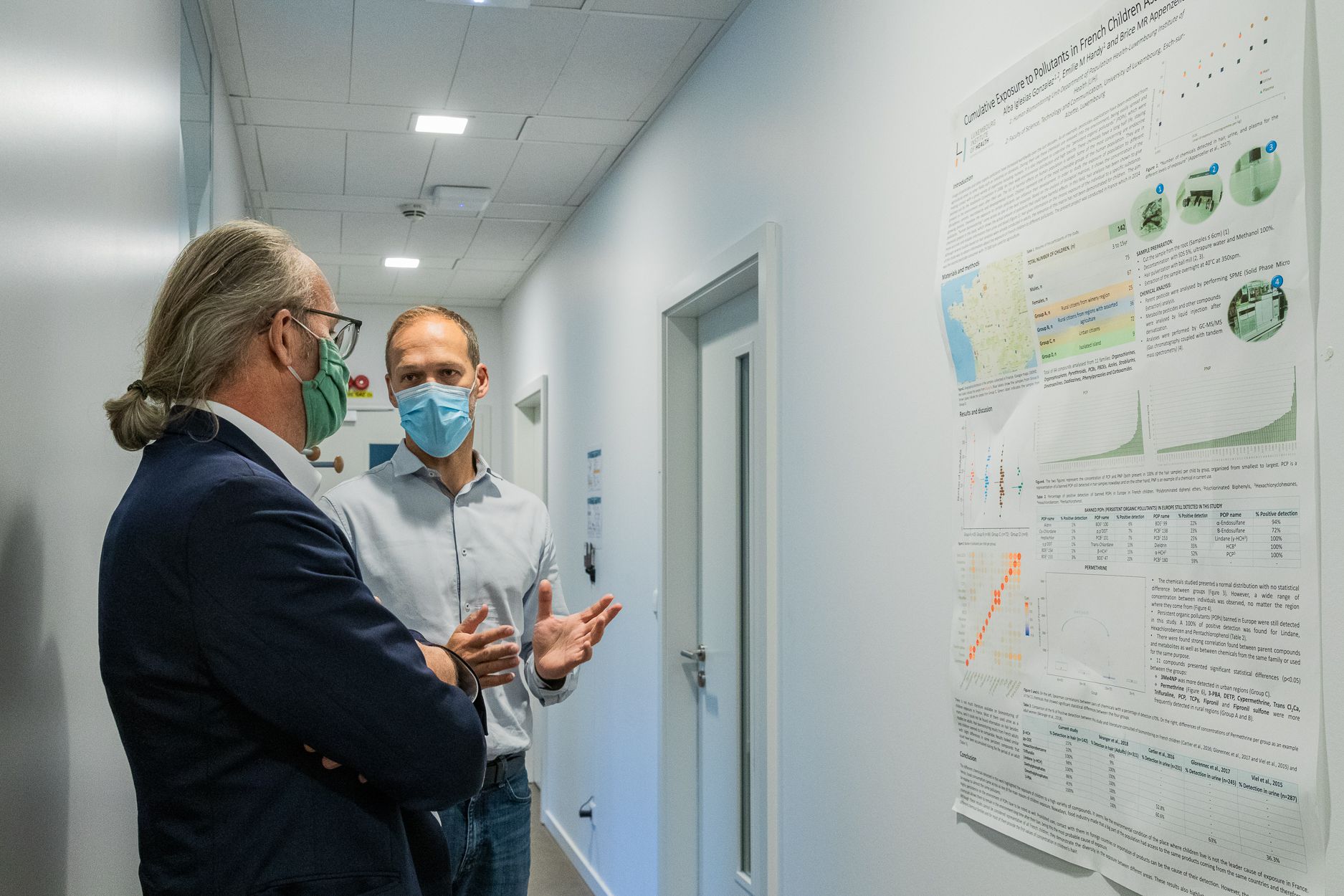02 July 2021
2 min read
From beer to bread: innovative up-cycling venture generates political interest
Luxembourg Minister of Energy and Spatial Planning visits LIH to discuss progress on BIOVAL project
Claude Turmes, the Minister of Energy and Spatial Planning in Luxembourg, visited the Luxembourg Institute of Health (LIH) on June 25 2021. As part of the guided tour, Dr Torsten Bohn of the LIH gave a short presentation on the BIOVAL project, a collaboration that aims to up-cycle the organic waste produced from the brewing of beer to create other food and chemical products.
On June 25 2021, Claude Turmes, Luxembourg’s Minister of Energy and Spatial Planning, was welcomed at the Edison campus of LIH for a special guided visit. The minister, best known for his interest and campaigns for the promotion of environmental technologies, was given a tour of the laboratory facilities at the Department of Population Health, and a presentation on the progress of BIOVAL, a promising environmental project to which the LIH is the primary partner in Luxembourg.
BIOVAL was originally launched in June 2017 as part of ‘Interreg Grande Région’, which supports regional and local governments across Europe to develop and implement solutions that have an integrated and sustainable impact and are aligned with the aims of a circular economy. BIOVAL is a pioneering project that aims to recycle waste material produced through beer manufacturing, i.e. brewery spent grains, with an annual global output of approx. 35 million tonnes. Indeed, the collaboration between Germany, Belgium, France and Luxembourg seeks to reduce the 90% organic waste by turning it into biodegradable cutlery, vinegar, flour, or even into compounds used in the pharmaceutical or cosmetic industries.
Dr Torsten Bohn, Group leader of the Nutrition and Health Research team of the Department of Population Health at LIH, is part of the team that is contributing to understanding and developing the health-related aspects of the BIOVAL project. “The main idea is – what can one usefully do with the tons of brewery waste that could at the same time improve population health?” explains Dr Bohn. As part of their research, the team found a way to incorporate spent grains as flour replacement into staple foods like bread to provide a source of fibre and other health-boosting bioactive compounds (such as polyphenols, a plant derivative that has been related to anti-inflammatory and antioxidant effects that are associated with a number of chronic diseases).
BIOVAL was originally launched in June 2017 as part of ‘Interreg Grande Région’, which supports regional and local governments across Europe to develop and implement solutions that have an integrated and sustainable impact and are aligned with the aims of a circular economy. BIOVAL is a pioneering project that aims to recycle waste material produced through beer manufacturing, i.e. brewery spent grains, with an annual global output of approx. 35 million tonnes. Indeed, the collaboration between Germany, Belgium, France and Luxembourg seeks to reduce the 90% organic waste by turning it into biodegradable cutlery, vinegar, flour, or even into compounds used in the pharmaceutical or cosmetic industries.
Dr Torsten Bohn, Group leader of the Nutrition and Health Research team of the Department of Population Health at LIH, is part of the team that is contributing to understanding and developing the health-related aspects of the BIOVAL project. “The main idea is – what can one usefully do with the tons of brewery waste that could at the same time improve population health?” explains Dr Bohn. As part of their research, the team found a way to incorporate spent grains as flour replacement into staple foods like bread to provide a source of fibre and other health-boosting bioactive compounds (such as polyphenols, a plant derivative that has been related to anti-inflammatory and antioxidant effects that are associated with a number of chronic diseases).
“Consumption of this flour is expected to help achieve the recommended intake of dietary fiber plus have anti-inflammatory properties, among other health benefits, in addition to exerting a beneficial environmental impact,”
concludes Dr Bohn.

